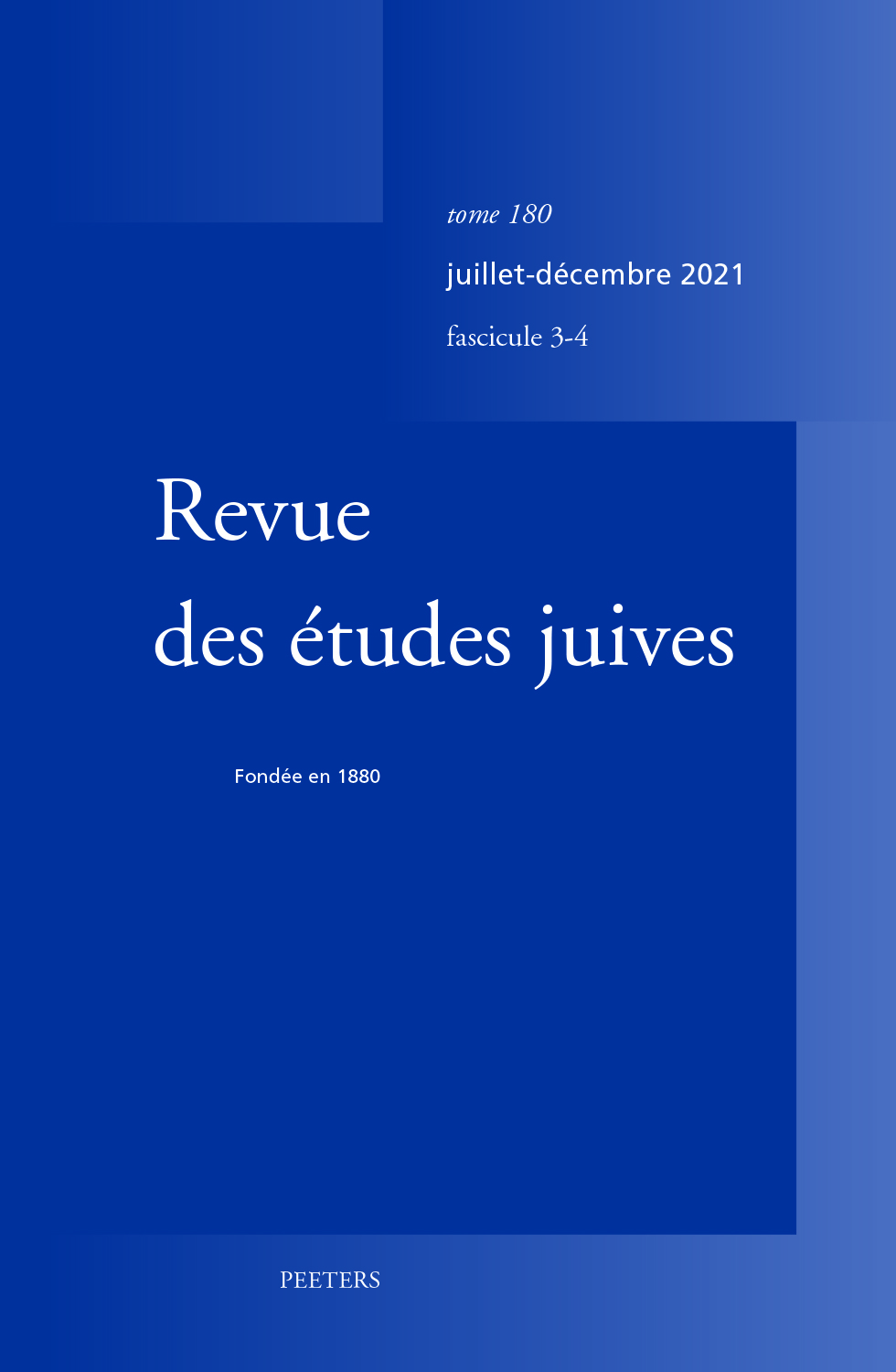 previous article in this issue previous article in this issue | next article in this issue  |

Preview first page |
Document Details : Title: Kol Yisra'el ḥaberim Subtitle: Les avatars d'une formule Author(s): ASLANOV, Cyril Journal: Revue des Études Juives Volume: 169 Issue: 3-4 Date: juillet-décembre 2010 Pages: 461-472 DOI: 10.2143/REJ.169.3.2061166 Abstract : Nul ne sait au juste qui est à l’initiative de la traduction de l’appellation «Alliance Israélite Universelle» par Kol Yisra’el ḥaberim. Il est probable que cette trouvaille soit le fait d’Isidore Cahen, le plus érudit parmi les pères fondateurs de l’organisation, mais rien ne le démontre objectivement. Cela ne devrait certes pas empêcher de rechercher les implications intertextuelles et pragmatiques de ce choix de traduction nourries aux sources de la liturgie synagogale et des deux Talmuds. Pourtant, la formule ne prit pas racine dans l’horizon linguistique hébréophone. Outre qu’elle fut le plus souvent abrégé en un sigle ou remplacée par le mot Alyáns, l’appellation Kol Yisra’el ḥaberim fait apparaître le terme ḥaber qui était trop saturé de sens du fait de son emploi en yiddish ou dans l’hébreu yiddishisé des pionniers du yishub. Nobody knows who took the initiative to translate the appellation «Alliance Israélite Universelle» by Kol Yisra’el ḥaberim. This finding may have been initiated by Isidore Cahen, the most learned of the organization’s founding fathers. However, no positive evidence can corroborate this assumption. That should not prevent us to elaborate on what is at stake from an intertextual and pragmatic vantage-point in this translator’s choice, which is fed by synagogal liturgy and the Talmudim. Anyway, the phrase did not strike roots within the linguistic horizon of Hebrew-speaking Palestinian Jews. Not only was it usually pronounced as the abbreviation Kíaḥ or simplified as Alyáns. The problem was that the formula Kol Yisra’el ḥaberim contains the word ḥaber, a term excessively saturated semantically due to the use that was made of it in Yiddish and the Yiddishized blend of Modern Hebrew that was spoken by the pioneers of the yishub. |
|


